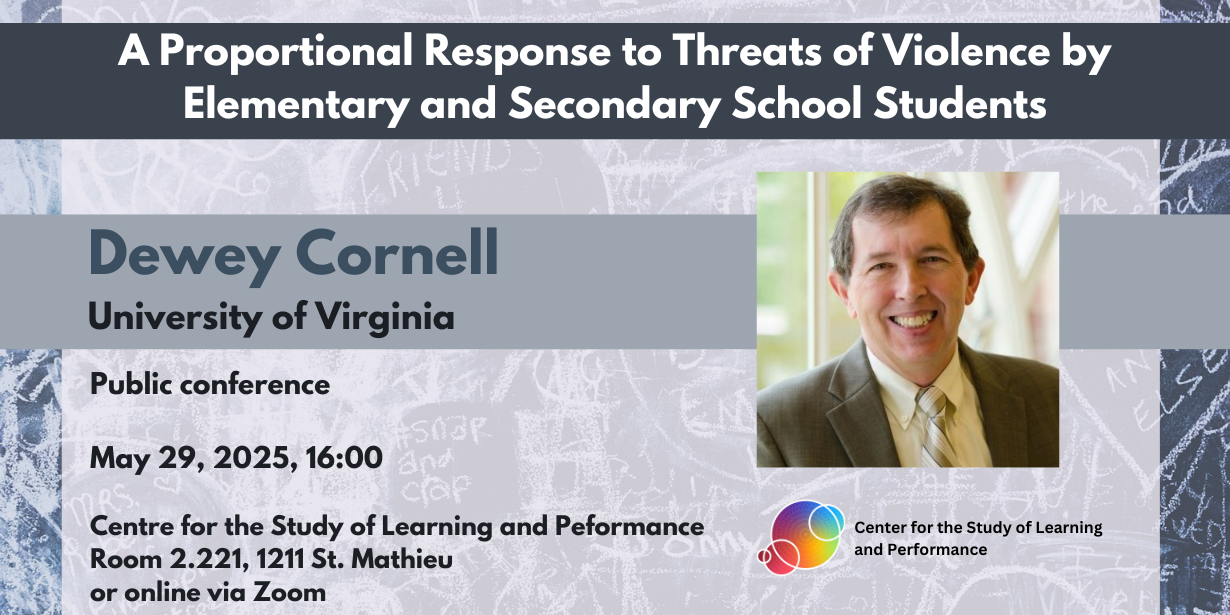A Proportional Response to Threats of Violence by Elementary and Secondary School Students
- Presentation in English, with simultaneous French translation
- Hybrid conference, join us in person or on Zoom
- May 29, 2025, 4pm Register now!
For safety reasons, school authorities often use out-of-school suspension or transfer when students make threats of violence or act in ways that suggest they pose a danger to others. However, educational research has found that school removal is not an effective strategy and can be over-used on students who did not pose a serious threat. Professor Cornell of the University of Virginia will present a protocol widely used by school staff in U.S. and Canadian schools to conduct assessments that distinguish serious threats from threats that are not serious and to respond proportionally based on the circumstances and context of the student’s behavior. Research conducted in more than 4,000 schools has found this protocol to be a safe and effective way to respond to student threats and to focus on providing support services for students rather than removing them from school.
Dewey G. Cornell
Dewey G. Cornell is a forensic clinical psychologist, the director of the Virginia Youth Violence Project, and a faculty associate of the Institute of Law, Psychiatry, and Public Policy. During his clinical and academic career, Cornell has worked with juvenile and adult violent offenders, testified in criminal proceedings and legislative hearings, and consulted on violence prevention efforts. He has authored more than 300 publications in psychology and education, including studies of juvenile homicide, school safety, bullying, and threat assessment. He is the principal author of the Comprehensive School Threat Assessment Guidelines, which is an evidence-based model of school threat assessment used in schools across the United States and Canada. He also led the development of the Authoritative School Climate Survey as a student and staff measure of school climate and safety conditions. He is currently directing a national study of school threat assessment with funding from the U.S. Department of Justice. A major emphasis in his work is the achievement of equity and fairness in school discipline and educational outcomes. [Source: University of Virginia]



